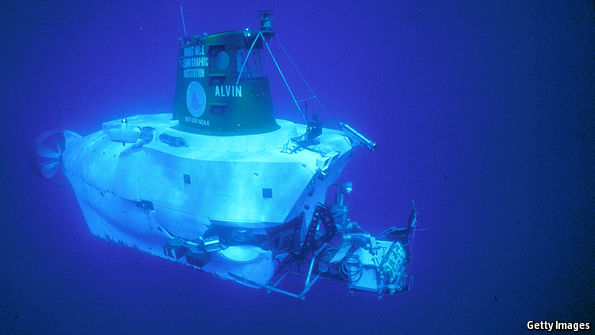Aluminium batteries could let submarine drones range farther

MUCH is made of the potential of flying drones. But drones are useful at sea, too. Unmanned underwater vehicles (UUVs), as they are known technically, are employed for things ranging from prospecting for oil and gas to naval warfare. Like their aerial cousins, though, ocean-going drones have limited ranges—limits that are often imposed by their batteries.
At the moment those batteries are usually either alkaline or lead-acid. Lithium-ion batteries, fashionable elsewhere, have not conquered the UUV world. Their tendency to catch fire counts against them. And they are sensitive to pressure, which is undesirable in devices that operate underwater. But a firm in Massachusetts, called Open Water Power (OWP), is offering an alternative: batteries based on aluminium. With these, its engineers hope to extend the ranges of underwater drones tenfold.
Each of OWP’s battery cells has a block of aluminium as its anode. The cell’s cathode is made of nickel. In a working battery, these anodes and cathodes alternate, and are bathed in an electrolyte made of seawater with some potassium hydroxide dissolved in it. This chemical keeps the battery…Continue reading
Source: Economist




